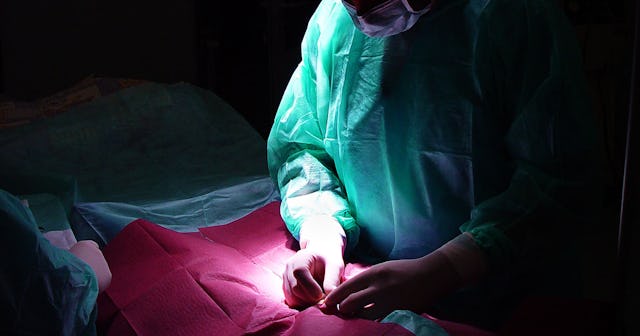Why I Got My Breast Implants Removed — And You Should Too

It’s been nine months since I had my breast implants removed, and I have never felt better. I had my implants for three and a half years. I was in pain — specifically shoulder, rib, and neck pain — the entire time. Two years after getting implants, I got sick and then sicker, eventually experiencing twenty-nine symptoms of what’s known as Breast Implant Illness, or BII for short.
And I’m not alone.
A quick Facebook search will lead you to a group called Breast Implant Illness and Healing By Nicole, which boasts of over 150,000 members, many of whom are openly sharing their stories of implant toxicity and healing after explant. Celebrities such as Clare Crawley, Kayla Lochte, and Chrissy Teigen are sharing their journey to explant. And this year, Michelle Visage, a judge on Ru Paul’s Drag Race, produced and starred in a documentary called Explant. In it, she details her journey with breast implant illness.
Between 2019 and 2020, breast implant removal surgeries increased by 8%, and, pandemic or not, in 2020, breast augmentation surgery was down a whopping 33% from the previous year, according the American Society of Plastic Surgeons. So why is there such a drastic shift in this area of plastic surgery?
Natural breasts are “in.”
Dr. David Rankin is a board-certified plastic surgeon in Florida. He performs 12 to 16 explant surgeries per week. He told me that, generally speaking, women are more interested in having a more natural and “athletic look.” If you are someone who cares about trends, au natural is in-vogue.
Dr. Amy DeRosa, a board-certified plastic and reconstructive surgeon, concurs. She had her own implants removed this year. She shared with me in an interview that for many, they had “breast implants placed prior to childbirth, breastfeeding, weight gain and loss” and now, they just aren’t “in the same mindset we were back when we thought our breasts defined us.”
Breast implants complicate breast cancer screenings.
It’s ironic that having surgery to “improve” your breasts can actually compromise your breast — and overall — health. Dr. Anjali Malik is a breast radiologist who told me that both implant types, saline and silicone, “can potentially obscure breast tissue and therefore small breast cancers.” She notes this is “more common in pre-pectoral implants, or those places in front of the muscle.” Additionally, when the person with implants has capsular contraction (see next point), this can make “performing a good quality mammogram difficult,” potentially preventing all the breast tissue from being visible.
Implants can cause chronic pain.
In addition to neck, back, shoulder, and rib pain — which can range from mild to debilitating, there’s another possible issue. About 10.6% of women with breast implants will experience a complication called capsular contracture. Capsular contracture is “when the scar tissue or capsule that normally forms around the implant tightens and squeezes the implant.” I personally found no relief from my muscular pain—not even with physical therapy, chiropractic care, and constant stretching — until I explanted. While some plastic surgeons may suggest the patient replace their implants, Dr. Rankin remarks that some patients experience “recurrent capsular contracture.”
Breast implants can cause BII.
Breast implant illness is not an official medical diagnosis, though the unofficial illness is very real to those of us who’ve experienced it. In fact, even the FDA acknowledges BII, and in October, they issued strict breast implant safety disclosure orders. BII can cause over fifty symptoms. If the root cause of illness is the implants, “explant your breast implants,” DeRosa said.
Plastic surgeons are now required to clearly disclose potential implant dangers.
The FDA issued strict orders in October regarding breast implant safety disclosure and possible complications. Women must be fully informed of the potential dangers of implants. Dr. DeRosa said that in the past, women weren’t always told that implants aren’t lifetime devices—but that’s changed the new FDA standards have “forced us to look at priorities and make decisions” when it comes to “cosmesis vs. health,” she added.
This article was originally published on